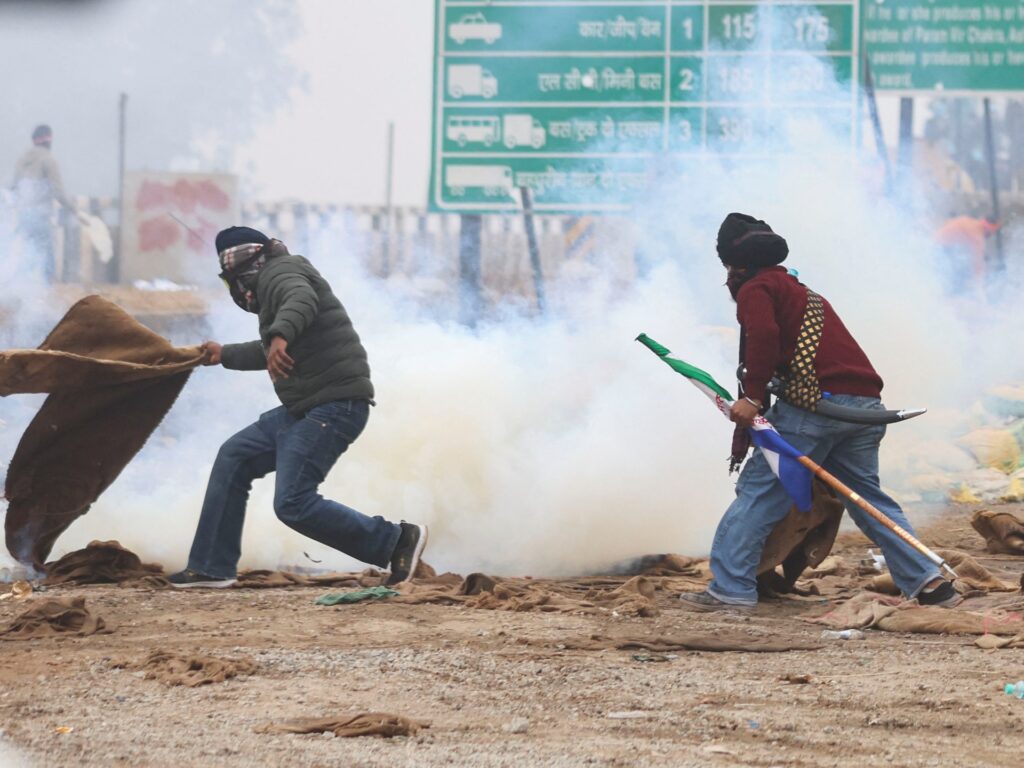Police fired tear gas at thousands of Indian farmers who resumed marching to the capital New Delhi after talks with the government failed to break an impasse over demands for guaranteed crop prices.
The protests come at a critical time for India, with national elections scheduled in the coming months and Prime Minister Narendra Modi's party widely expected to win a third consecutive term in power. There is.
Farmers began a protest last week but were stopped about 200 kilometers (125 miles) from the capital. Authorities are determined to contain the protests, which have been revived more than two years ago when tens of thousands of farmers camped on the outskirts of the city for more than a year.
At the time, farmers pitched tents, bought groceries and staged a sit-in until they forced the repeal of new farm laws, a major reversal for the Modi government.
This time, authorities barricaded the highway into New Delhi with cement blocks, metal containers, barbed wire and iron spikes to prevent farmers from entering.
On Wednesday, farmers arrived at the barricades with bulldozers and excavators and tried to break through the barricades.
Last week, farmers suspended their protests and huddled near the town of Shambhu, near the northern border of Punjab and Haryana, while their union held talks with government officials.
They rejected a government offer to offer five-year contracts guaranteeing prices for certain crops, including corn, grains, legumes and cotton, and farmers resumed marching on Wednesday.

